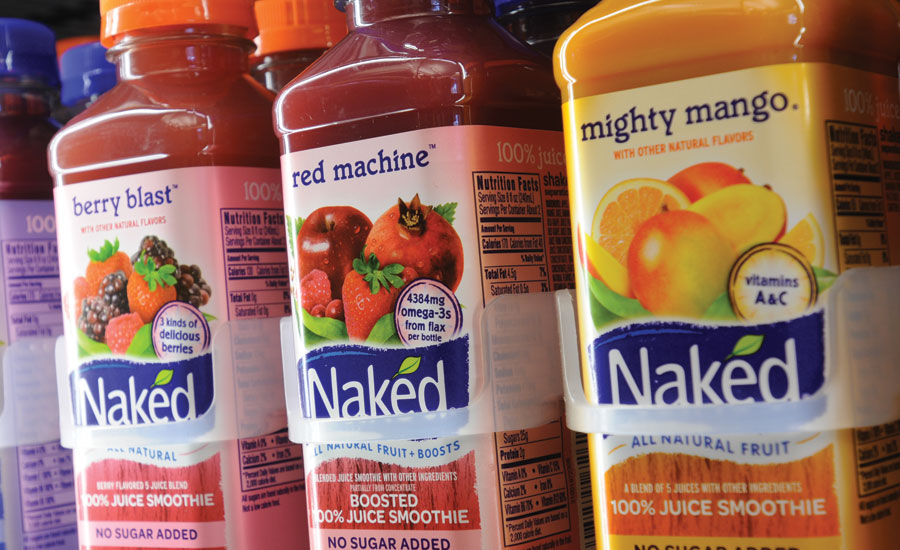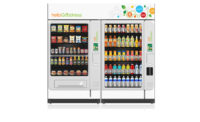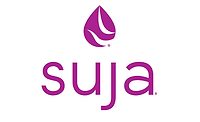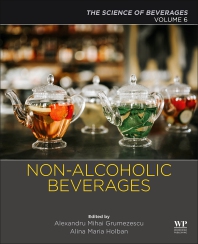Naked Juice use social media to regain consumer trust
Beverage brands use social media marketing to gain trust

There was once a time when marketing was trusted by consumers. However, in the digital age, when information is just a few clicks away, it’s become even more important for brands to be as transparent and honest as possible.
As with many other trends in the beverage industry today, millennials — those aged 21-38 — are a driving force not only in the push for honesty, but also toward social media engagement. This consumer group requires new qualities from the brands they choose to purchase — and transparency is a key component.
According to Chicago-based Mintel’s 2015 “Marketing to Millennials” report, millennials accept marketing as a part of life, but do hold high expectations. The group, now larger than even the baby boomers, can’t be ignored. According to the report, this consumer group accounts for 24.6 percent — or a staggering
79 million consumers in the United States.
The report states that it’s important for brands to understand the following four facts about millennials:
- “Millennials are savvy content consumers.” Millennials have many distractions that allow them to circumvent TV ads. Marketing has to be engaging and meaningful to reach this audience.
- “Millennials expect transparency.” Their relationships with brands can be irreversibly damaged because of omission of information or deceptive practices.
- “Millennials desire relationships and authenticity.” They recognize that ads are looking to sell, but will put aside cynicism if they think a company is sincere. Millennials are attracted to brands that incorporate values into their identities.
- “If millennials don’t like you, they will ignore you.” Millennials don’t wait for content, instead they actively choose what and how they view. “If a company doesn’t create engaging ads and participate in two-way conversations, then millennials will unsubscribe.”
It’s this heavy focus on building trust that Seth Hillstrom, managing partner for the American Beverage Consortium, indicates is the key benefit social media offers a beverage marketer. He says that the need for trust in advertising has really driven the push toward social media.
“The importance of social media for brands goes back to the age-old question of how to build trust in advertising,” Hillstrom says. “And it’s a pretty tough thing to do. Social media allows brands to engage with their consumers, fans and even advocates in a more personal and meaningful way — and most importantly, in the realm where the digital consumer chooses to be.”
One example came when Naked Juice Co., a subsidiary of Purchase, N.Y.-based PepsiCo Inc., introduced its Power Garden, which is one example of a successful and innovative use of social media to regain honesty with the brand’s consumers. In 2013, after faced with lawsuits that questioned the brand’s claims of healthy, natural ingredients, Naked launched its Power Garden campaign. The campaign even was a finalist for the Best Use of Social Media for Food and Beverage in last year’s 6th Annual Shorty Awards, an award that honors the best in social media advertising.
Back in 2013, the company released Tomato Kick variety and recruited New York-based Optimum Media Direction (OMD) to bring about a social media campaign that would, “’Connect users to the harvest’” to emphasize all the vegetable in the new line of juices,” OMD said in its entry to the Shorty Awards.
The company contemplated what “harvest” actually meant to Naked’s consumers. “For 21st century users, the word ‘connection’ is more a reflection of their digital lives than their physical lives,” the company explained. “Additionally, to reinforce Naked Juice’s promise of natural ingredients, we found it important to connect users to a physical harvest of real vegetables. …With those insights, we sought to enable users to tend a physical vegetable harvest via their pre-existing digital behavior on Twitter.
“From the beginning, the idea was built around social behavior and the ability to let people interact with something real and tangible through an intangible digital channel,” the company continued.
The company created an “OOH component” with the digital media so that the garden could be tended to from around the world. A real garden growing the vegetables that are used as ingredients in Naked Juice was planted near Union Station in downtown Chicago. The garden sensed when pedestrians were passing and literally called out to them for on-site engagement, the company said. Spectators could touch the vegetables and each would speak in a unique voice responding to their touch.
Those not on-site could interact through the Twitter handle @ThePowerGarden, which responded in real-time tweets. “Any tweet that mentioned ‘water’-related keywords activated the garden’s sprinkler system, allowing anyone to tend to the garden,” OMD explained. “The garden also had its own UStream page where others could watch the sprinklers turn on and off as they tweeted.”
By the end of the campaign, consumers’ opinions of the brand had improved 40 percent compared with the last year, the company reported.
“The garden could not have survived without Twitter engagement from users,” the company said. “This interaction between media channels created a unique experience for users that influenced both their digital and physical worlds in a way never seen before.”
Looking for a reprint of this article?
From high-res PDFs to custom plaques, order your copy today!









